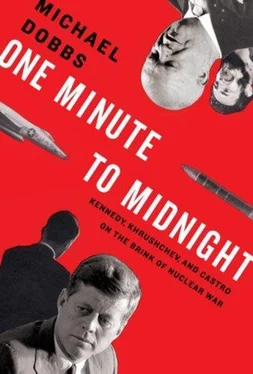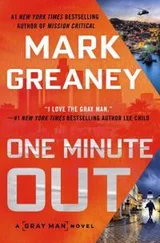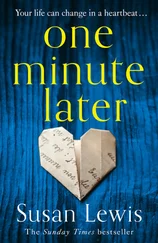Dobrynin objected that American planes had no right to fly over Cuba at all. Rather than argue the point, Bobby wanted the ambassador to understand American political realities. The military was demanding that the president “respond to fire with fire.” Khrushchev should know that there were many hotheads among the generals—“and not only among the generals”—who were “itching for a fight.”
“We can’t stop these overflights,” RFK explained. “It’s the only way we have to quickly get information about the state of construction of your missile bases on Cuba, which pose a very serious threat to our national security. But if we open fire in response, a chain reaction will start that will be very difficult to stop.”
A similar logic applied to the Soviet missile bases, said Bobby. The United States was determined to “get rid” of the bases, if necessary by bombing them. If this happened, Soviet citizens would almost certainly be killed, causing Moscow to take action against the United States somewhere in Europe. “A real war will begin, in which millions of Americans and Russians will die. We want to avoid that any way we can.”
Bobby described the contents of Kennedy’s latest letter to Khrushchev. The president was ready to end the quarantine and issue guarantees against an invasion of Cuba if the Soviet government dismantled the missile bases.
“What about Turkey?” the ambassador wanted to know.
This was the trickiest, most sensitive issue, the one that had preoccupied the president and the ExComm for much of the day. Once again, Bobby took the Russian into his confidence and explained the dilemma facing his brother. The president was willing to withdraw the Jupiters “within four to five months.” But he could not make any kind of public commitment. The decision to deploy the Jupiters had been taken collectively by NATO. If it appeared that the United States was dismantling the missile bases unilaterally, under pressure from the Soviet Union, the alliance might crack apart.
Bobby asked for a quick answer from Khrushchev, by Sunday if possible. “There’s very little time left,” he warned. “Events are moving too quickly.”
8:25 P.M. SATURDAY, OCTOBER 27
RFK checked back into the White House at 8:25 p.m. His meeting with Dobrynin had lasted no longer than fifteen minutes. He immediately went up to the executive mansion, where he found the president chatting with his four-year-old daughter on the phone. Over the past few days, Kennedy had been more than usually attentive to Caroline and John Junior, taking the time to put them to bed and read them goodnight stories. He told Dave Powers that he worried not just about his own children but “the children everywhere in the world” whose “lives would be wiped out” in the event of nuclear war.
Skipping his regular evening swim because of the pressure of meetings, the president invited Powers for an informal supper in the upstairs living room. The kitchen staff had left some broiled chicken on a hot-plate. Jack opened a bottle of white wine. A hungry Bobby asked if they could spare “an extra chicken leg” as he reported on his meeting with the Soviet ambassador. All three men were busy eating and drinking when Kennedy looked at Powers with mock disapproval.
“God, Dave. The way you’re eating up all that chicken and drinking up all my wine, anybody would think it was your last meal.”
“The way Bobby’s been talking, I thought it was my last meal,” Powers replied.
The lighthearted joking disguised increasing concern. The White House was the prime target for a Soviet missile attack. Over the last few days, the staff had been receiving packages of instructions telling them what to do and where to go in an emergency. Top aides like Powers, Sorensen, and Kenny O’Donnell received pink identification cards, which meant they would accompany the president to an underground bunker in the Blue Ridge Mountains of West Virginia. An elite helicopter unit, the 2857th Test Squadron, had the sole mission of landing on the White House lawn if a nuclear strike seemed imminent, and whisking the president and his closest aides to safety. The helicopter crews were even ready to make a poststrike rescue attempt. Dressed from head to toe in protective clothing, they would smash their way into the White House bomb shelter with crowbars and acetylene torches, bundle the president into a radiation suit, and fly him out of the rubble.
The evacuation instructions were part of a secret doomsday plan to ensure the survival of the U.S. government in the event of nuclear war. The president would be evacuated to Mount Weather, fifty miles from Washington, along with cabinet secretaries, Supreme Court justices, and several thousand senior federal officials. Facilities at Mount Weather included an emergency broadcasting network, decontamination chambers, hospital, emergency power plant, crematorium, and presidential suite complete with a special therapeutic mattress for JFK’s bad back. Congress had just completed construction of its own “secure, undisclosed location” beneath the luxury Greenbrier Hotel, in the Allegheny Mountains. Contingency plans called for the rescue of Federal Reserve assets and cultural treasures such as the Declaration of Independence and masterpieces from the National Gallery of Art.
“What happens to our wives and kids?” asked Powers, after receiving his pink card.
The families had somehow fallen through the cracks in the doomsday planning. The president’s naval aide, Captain Tazewell Shepard, was ordered to make the necessary arrangements. He told dependents to assemble inside a fenced-off reservoir in northwest Washington without bringing any personal belongings. “Minimal supplies of food and water” would be provided for a journey by motorcade to “a relocation site outside of the Washington area.” Kenny O’Donnell felt that the chances of survival for his wife and five children were “slim” at best.
Lacking confidence in the government’s plan, families of top officials devised their own evacuation plans. Dino Brugioni, a key member of the CIA team monitoring the Soviet missile buildup, “succumbed to the general mood of apocalypse” on Saturday evening. Seeing no way out of the crisis “except war and complete destruction,” he told his wife to get ready to drive their two children to his parents’ home in Missouri, halfway across the country. The man in charge of the president’s daily intelligence bulletin, Dick Lehman, had a similar agreement with his wife.
Often the higher the official, the gloomier they were about the chances for a peaceful outcome of the crisis. Earlier that evening, Bob McNamara had wandered out onto the veranda outside the Oval Office during a break in the ExComm discussions and watched the sunlight fade away. It was a gorgeous fall evening, but the defense secretary was too preoccupied to enjoy it. He thought to himself that he might “never live to see another Saturday night.”
9:00 P.M. SATURDAY, OCTOBER 27 (8:00 P.M. HAVANA)
The secretary of defense wanted the low-level Navy reconnaissance planes to be accompanied by fighter escorts in their missions over Cuba. “If our planes are fired on tomorrow, we ought to fire back,” McNamara insisted, after ExComm members reassembled in the Cabinet Room for a final evening meeting.
The president did not see the point of taking out individual antiaircraft guns. “We just hazard our planes, and the people on the ground have the advantage.” He agreed with the military chiefs. If there were any further attacks on American planes, he would announce that the United States considered the island of Cuba “open territory,” and take out all the SAM sites. In the meantime, he would activate twenty-four air reserve squadrons, with roughly three hundred troop carrier transports. Known as “flying boxcars,” the C-119 planes would ferry airborne troops and supplies to Cuba in an invasion. Calling up the reservists was a way of signaling American determination.
Читать дальше












